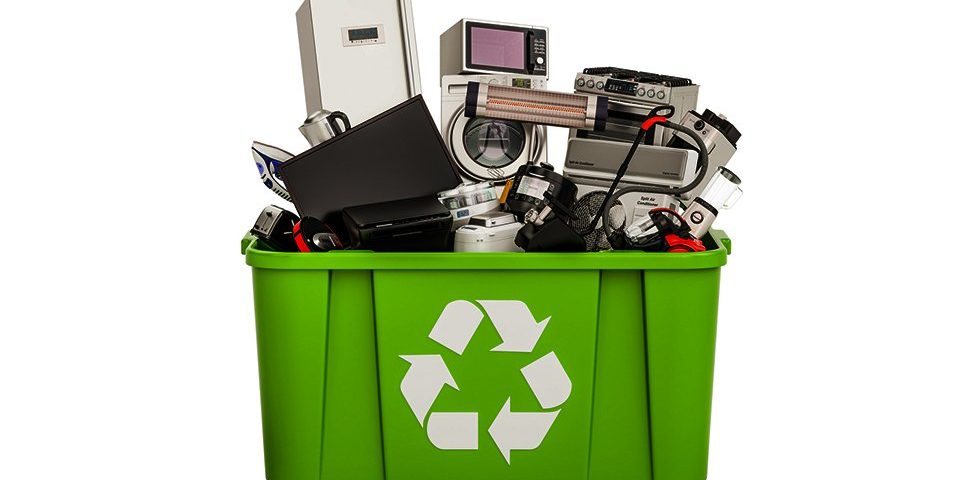
Introduction
Recycling old electronics has become an increasingly important topic in today’s society. With the rapid advancement of technology, electronic waste, also known as e-waste, is accumulating at an alarming rate. In this article, we will explore the relevance and importance of recycling old electronics, highlighting its benefits for both individuals and the environment.
Historical Background
Electronic waste has been a growing concern for several decades. As technology evolves, older devices become obsolete and are discarded, contributing to the accumulation of e-waste. This waste contains hazardous materials such as lead, mercury, and other toxic substances that can pose serious threats to the environment if not properly managed. In response to this issue, recycling programs and initiatives have emerged to mitigate the environmental impact of e-waste.
Key Concepts and Definitions
To understand the significance of recycling old electronics, it is essential to define key terms and concepts. Electronic waste, or e-waste, refers to discarded electronic devices and their components. Recycling involves the process of transforming these old devices into reusable materials. It can encompass various methods, including refurbishing, reusing, and proper disposal. These terms are crucial in addressing the growing problem of e-waste.
Main Discussion Points
Importance of Recycling Old Electronics
Improperly disposing of old electronics can have severe environmental consequences. The hazardous materials present in these devices can contaminate soil, water, and air, causing pollution and endangering ecosystems. Recycling old electronics helps mitigate this impact by conserving resources and reducing waste. Additionally, recycling contributes to a circular economy, where materials are reused instead of being disposed of, leading to a more sustainable future.
Tips for Recycling Old Electronics
When recycling old electronics, certain preparations are necessary to ensure the process is efficient and safe. Removing personal data and disconnecting batteries are crucial steps to protect privacy and prevent accidents. Various options exist for recycling old electronics, such as utilizing drop-off locations or participating in mail-in programs. It is important to choose certified recyclers who adhere to recycling certifications like R2 and e-Stewards, ensuring responsible and sustainable disposal practices.
Precautions to Consider
Certain electronic components, such as lead and mercury, can pose hazards to human health and the environment. It is essential to handle and transport old electronics safely, following specific guidelines to prevent accidents and exposure to toxic materials. Proper disposal methods for hazardous materials must be emphasized, as they can have long-lasting effects on ecosystems if not managed correctly.
Case Studies or Examples
Real-world examples of successful electronic recycling programs and initiatives showcase the positive impacts of recycling old electronics. These programs can significantly contribute to waste reduction, resource conservation, and environmental preservation. Additionally, they often create employment opportunities and stimulate local economies. Examining these case studies can inspire further participation and support for electronic recycling efforts.
Current Trends or Developments
In recent years, there has been a noticeable increase in consumer awareness and participation in electronic recycling. People are becoming more conscious of the environmental impact of e-waste and are actively seeking ways to recycle their old devices. Technological advancements in e-waste recycling processes, such as improved sorting and recovery techniques, are also pushing the boundaries of what is possible in terms of recycling efficiency. Research findings continue to highlight the environmental and economic benefits of recycling old electronics, further encouraging participation in such initiatives.
Challenges or Controversies
Despite the progress made in electronic recycling, there are challenges that need to be addressed to ensure effective implementation of recycling programs. Some of these challenges include the lack of awareness and education regarding proper recycling methods, as well as the difficulty in establishing convenient and accessible recycling options. Controversies surrounding e-waste exportation and disposal methods also raise concerns about the effectiveness and sustainability of electronic recycling efforts.
Future Outlook
The future of electronic recycling holds great potential for advancements in technologies and processes. Continued research and innovation will likely lead to more efficient and environmentally friendly recycling methods. Government regulations and policies can play a significant role in shaping the future of electronic recycling, promoting responsible disposal and creating incentives for recycling initiatives. Consumer behavior and education will also contribute to a sustainable future by fostering a culture of recycling and environmental consciousness.
Conclusion
Recycling old electronics is of utmost importance for environmental sustainability and resource conservation. By properly disposing of electronic waste, we can mitigate the environmental impact of hazardous materials, conserve valuable resources, and contribute to a circular economy. The significance of electronic recycling cannot be overstated, as it holds the key to a more sustainable and environmentally friendly future.